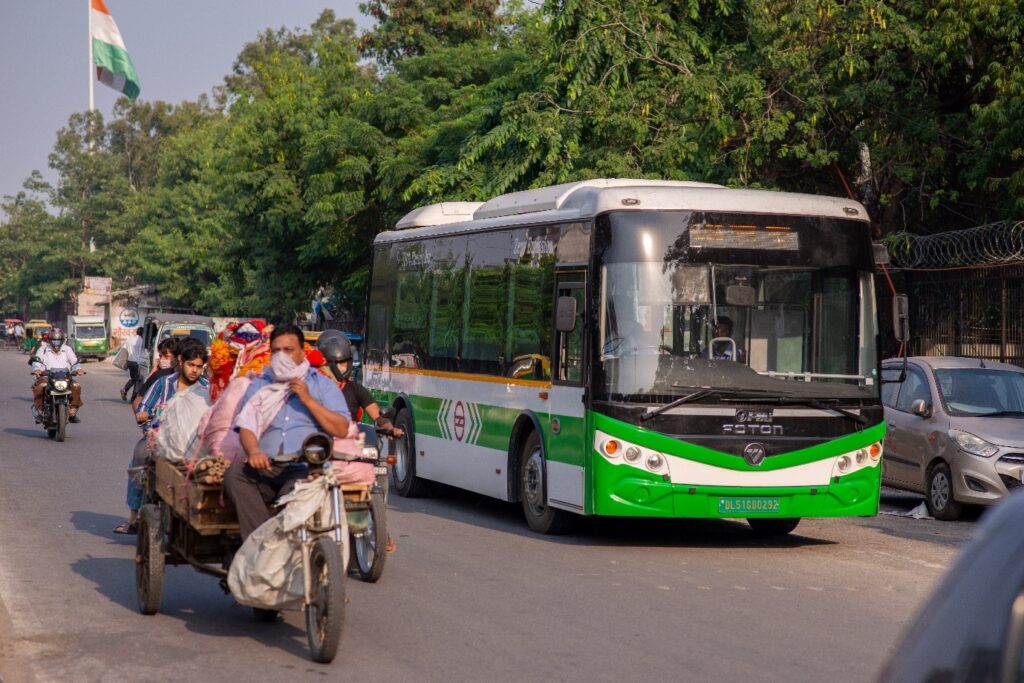India has approved an investment of INR576.13 billion (US$7 billion) to improve green public transport infrastructure. Bloomberg stated that the funds would be use to purchase 10,000 electric buses for use in various cities.
Anurag Thakur, minister of information and broadcasting, stated that this initiative would alleviate public transport shortages and usher in a new era of electric mobility. The federal government, along with private companies, would contribute INR 200 billion.
According to Bloomberg, the plan would entail cities with populations ranging from 300,000 to 4 million competing for financial assistance.
The government, according to Thakur, will provide subsidies for the buses.
Shift to Electric Buses: Collaboration and Financial Support
This decision came as a result of a recent meeting between India’s heavy industries minister, Mahendra Nath Pandey, and US climate envoy, John Kerry, which was focus on potential US financial support for the project. Earlier this year, the federal oil ministry commissioned a report that emphasized the need to transition from diesel buses to greener alternatives. According to the study, India would need to add 3 million buses to meet the demand for public transport.
India to spend heavily on electric buses was originally created and published by Just Auto, a GlobalData owned brand.
The Cabinet has approved the Vishwakarma Yojana, according to Railways Minister Ashwini Vaishnaw. Prime Minister Narendra Modi announced on Tuesday the Vishwakarma Yojana, a mega scheme with an outlay of Rs 13,000 to Rs 15,000 crore, to increase livelihood opportunities for people engaged in traditional skills such as carpenters, masons, and goldsmiths.
Also, the scheme, which will primarily benefit people from the Other Backward Classes (OBC), will launch on Vishwakarma Jayanti, which falls on September 17. On the occasion of Vishwakarma Jayanti, he announced the launch of a program for people earning a living through traditional skills, whether with tools or their own hands.











More Stories
Aamir Khan: ‘रिलेशनशिप छिपाने में यकीन नहीं रखता’, गर्लफ्रेंड गौरी पर बोले आमिर खान- रिश्ता स्वीकारना मुश्किल था
Hina Khan flaunts bridal glow at awards show after wedding to Rocky Jaiswal; rocks purple saree
6 महीने में मर जाओगे… 230 किलो के अदनान सामी को जब डॉक्टर ने दी थी चेतावनी